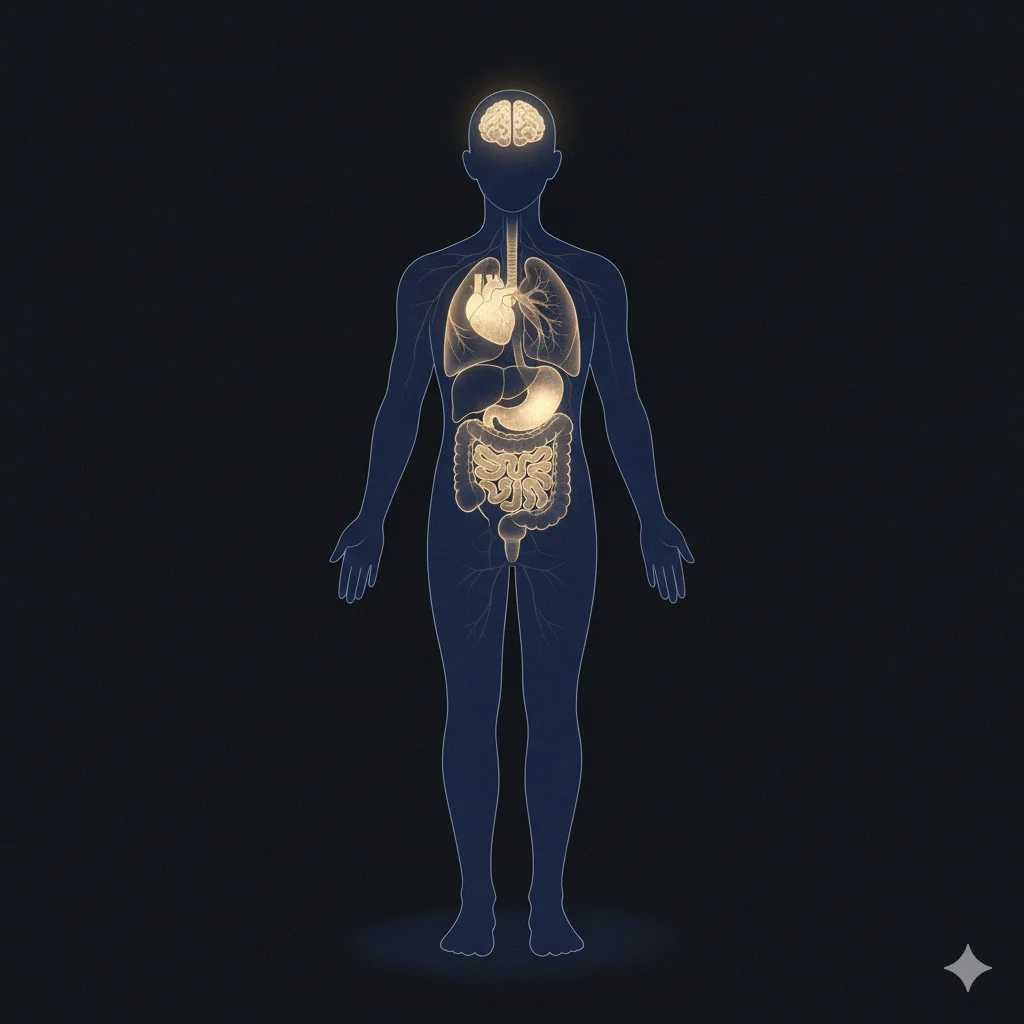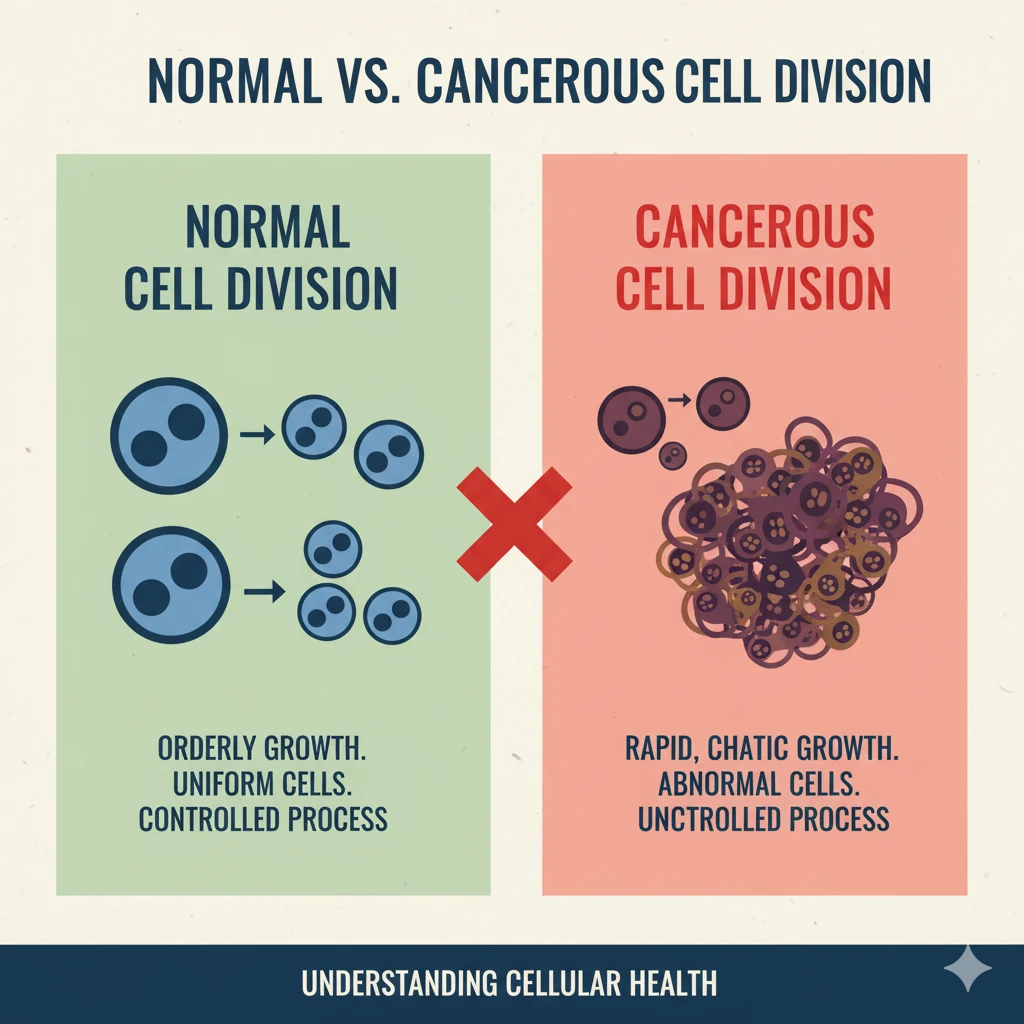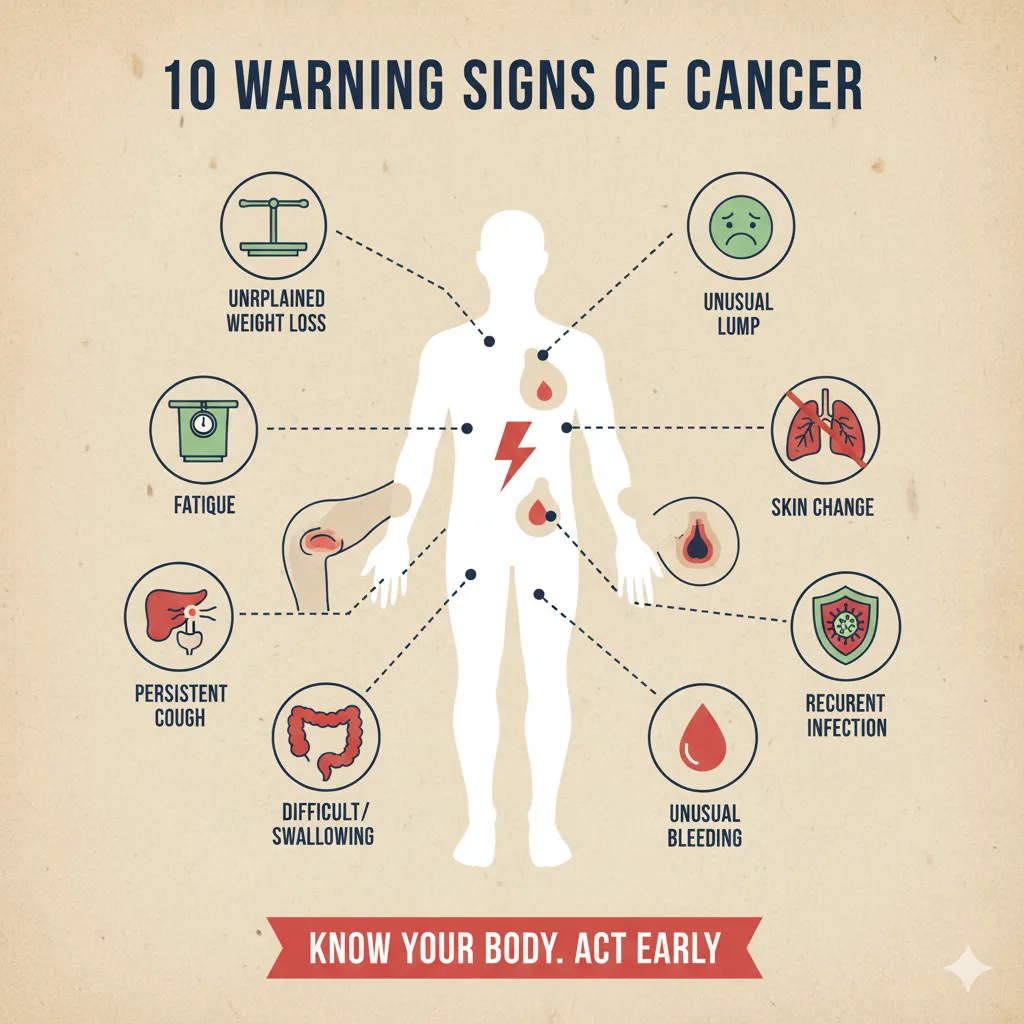Cancer is one of the most feared diseases in the world — not because it always strikes suddenly, but because its early warning signs often go unnoticed. Many people dismiss persistent fatigue as stress, chronic pain as aging, or a lingering cough as allergies, never realizing these could be their body’s urgent plea for help. The truth is that cancer rarely appears without warning; most of the time, your body sends subtle signals that something is seriously wrong, sometimes months before a formal diagnosis.
The challenge lies in recognizing these signs early enough to make a difference. According to oncologists, approximately 80% of cancer patients miss early warning symptoms, mistaking them for everyday issues until the disease has progressed to advanced stages. This is particularly tragic because early detection dramatically increases survival rates and treatment success across nearly all cancer types.
Your body is constantly communicating with you through symptoms that, while seemingly minor, could indicate that abnormal cells are multiplying and spreading. Understanding these warning signs empowers you to take action quickly, seek medical evaluation, and potentially catch cancer at its most treatable stage.

Here are the most common warning signs that cancer might be developing in your body — and why you should never ignore them.
Understanding Cancer Growth

Cancer occurs when cells in your body begin to grow and divide uncontrollably, forming abnormal cell clusters that can invade and damage healthy tissue. Unlike normal cells, which grow, divide, and die in an orderly way, cancer cells continue multiplying without stopping and can spread to other parts of the body through blood or lymph systems.
Cancer can develop in virtually any organ or tissue — lungs, breasts, colon, prostate, skin, blood, and more. Each type has unique characteristics, but many share common warning signs that shouldn’t be ignored. The key difference between early-stage and advanced cancer often comes down to one factor: recognition and response time.
Why early detection matters: When cancer is caught early, before it has spread beyond its original site, treatment options are more effective and survival rates increase dramatically. Regular health screenings, self-examinations, and awareness of your body’s normal baseline are essential tools for catching cancer in its earliest, most treatable stages.
10 Warning Signs That Cancer May Be Growing in Your Body

Cancer symptoms vary depending on where in the body the disease develops, but certain warning signs appear across multiple cancer types. Here are ten critical symptoms that should never be dismissed:
1. Unexplained Weight Loss
If you’ve lost more than 10 pounds without changing your diet, exercise habits, or lifestyle, this could be an early sign of cancer — particularly cancers of the stomach, pancreas, esophagus, or lungs. This isn’t the gradual weight fluctuation most people experience; it’s noticeable, unintentional weight loss that happens relatively quickly.
Why it happens: Cancer disrupts your body’s metabolism and increases inflammation, which produces pro-inflammatory cytokines that alter appetite-regulating hormones. Growing tumors also consume significant amounts of your body’s energy, increasing your resting energy expenditure even when you’re not active. Additionally, some cancers press on the stomach, making you feel full faster, or cause symptoms that make eating difficult.
When cancer causes severe, progressive weight loss accompanied by muscle wasting, it’s called cancer cachexia — a metabolic condition that leads to profound muscle loss and reduced appetite.
➡️ What to do: Track your weight regularly and discuss any unexplained loss of 10 pounds or more with your healthcare provider immediately. Your doctor can order comprehensive tests to determine the underlying cause.
2. Persistent Fatigue and Weakness
Extreme tiredness that doesn’t improve with rest, sleep, or reducing stress may signal that cancer is using up your body’s energy resources or affecting red blood cell production. This isn’t ordinary tiredness — it’s profound, debilitating exhaustion that makes even simple daily tasks feel overwhelming.
Why it happens: Cancer cells rapidly multiply and consume vast amounts of energy and nutrients, leaving less available for normal body functions. Some cancers, particularly leukemia and lymphoma, directly affect blood cell production, causing anemia and severe fatigue. Cancer also triggers chronic inflammation, which drains energy reserves.
➡️ What to do: Get a comprehensive blood test to check for anemia, infection, or other underlying issues. Document when fatigue started, its severity, and any patterns you notice.
3. Unusual Pain That Doesn’t Go Away
Chronic or unexplained pain anywhere in your body — especially pain that worsens over time or doesn’t respond to typical treatments — can be an early warning sign of cancer. This includes persistent headaches, bone pain, back pain, or abdominal discomfort without an obvious cause.
Why it happens: Pain occurs when tumors press on nerves, bones, or organs, or when cancer spreads to bone tissue. As we age, aches and pains become more common, which is why many people dismiss cancer-related pain as normal aging.
➡️ What to do: Document when pain occurs, its location, intensity, and any changes in character. If pain persists for more than a few weeks or progressively worsens, seek medical evaluation immediately.
4. Lumps, Swelling, or Thickening Under the Skin
New lumps or areas of swelling — particularly in the breast, testicles, neck, armpit, stomach, groin, or lymph nodes — should always be examined by a doctor. Not all lumps are cancerous, but persistent lumps or swelling that doesn’t go away warrant immediate medical attention.
Why it happens: Lumps can indicate tumor growth directly beneath the skin, or they may represent swollen lymph nodes responding to cancer elsewhere in the body. Many cancers, including breast cancer, testicular cancer, and lymphomas, first present as palpable lumps.
➡️ What to do: Don’t adopt a “wait and see” approach with new lumps. Schedule an appointment with your healthcare provider for examination, and if recommended, imaging or biopsy.
5. Skin Changes: New Moles or Changes to Existing Moles
Watch carefully for new moles, changes in the size, shape, or color of existing moles, or sores that don’t heal. Skin cancer, including dangerous melanoma, often begins with subtle skin changes that people overlook.
Why it happens: Abnormal melanocytes (pigment-producing cells) begin growing uncontrollably, forming unusual lesions on the skin. Sun exposure, genetics, and immune system factors all contribute to skin cancer development.
Use the ABCDE rule to evaluate moles:
A – Asymmetry: One half doesn’t match the other
B – Border: Irregular, ragged, or blurred edges
C – Color: Multiple colors or uneven shades (black, brown, tan, white, red, blue)
D – Diameter: Larger than 6mm (about the size of a pencil eraser)
E – Evolving: Changes in size, shape, color, or new symptoms like itching, bleeding, oozing, or crusting
➡️ What to do: Schedule a dermatology appointment immediately for any suspicious mole or skin change. Early-stage melanoma is highly treatable when caught quickly.
6. Changes in Bowel or Bladder Habits
Persistent changes in bathroom habits — including ongoing constipation, diarrhea, narrowing of stools, blood in the stool, blood in urine, increased urinary frequency, urgency, or pain when urinating — may indicate colorectal, bladder, or kidney cancer.
Why it happens: Tumors in the colon, rectum, or bladder can obstruct normal function, cause bleeding, or irritate tissues, leading to noticeable changes in elimination patterns. Blood in stool or urine is particularly concerning and should never be ignored.
➡️ What to do: If bowel or bladder changes persist for more than two weeks, schedule a medical evaluation immediately. Your doctor may recommend colonoscopy, cystoscopy, or other screening tests depending on your symptoms.
7. Persistent Cough or Hoarseness That Won’t Go Away
A cough lasting more than three weeks, especially if you’re a current or former smoker, could signal lung cancer or laryngeal (throat) cancer. Similarly, hoarseness or voice changes lasting more than three weeks warrant medical evaluation.
Why it happens: Lung tumors irritate airways and trigger persistent coughing. Cancer can also cause fluid to accumulate between lungs and chest (pleural effusion), narrow airways, or lead to frequent respiratory infections. Laryngeal cancer directly affects the voice box, causing chronic hoarseness.
A lung cancer cough often starts dry and comes in spasms, creating a constant need to clear your throat. Over time, it may progress to coughing up blood or rust-colored mucus.
➡️ What to do: Get a chest X-ray or CT scan if you have a persistent cough. See an ENT specialist for hoarseness lasting more than three weeks. Early detection significantly improves treatment outcomes.
8. Difficulty Swallowing or Chronic Indigestion
Ongoing trouble swallowing (dysphagia), frequent heartburn, or persistent indigestion that doesn’t improve with treatment could indicate cancer of the esophagus, throat, or stomach.
Why it happens: Tumors in the esophagus or throat narrow the passageway, making swallowing difficult or painful. Stomach cancer can cause chronic indigestion, bloating, and discomfort that doesn’t respond to typical remedies.
➡️ What to do: Don’t dismiss chronic swallowing difficulties or persistent digestive discomfort as simple heartburn. Request an endoscopy or other diagnostic imaging to examine your upper digestive tract.
9. Unusual Bleeding or Discharge
Unexplained bleeding is always concerning and warrants immediate medical attention. This includes coughing up blood, rectal bleeding, blood in urine, abnormal vaginal bleeding (between periods, after sex, or post-menopause), unusual bruising, or any other bleeding without injury.
Why it happens: Tumors can bleed as they grow and erode blood vessels, or cancer affecting blood cell production (like leukemia) can cause abnormal bleeding or easy bruising.
➡️ What to do: Never ignore bleeding that seems unusual for you. Contact your healthcare provider immediately, regardless of the amount or color of blood. Early evaluation can identify cancer at treatable stages.
10. Recurring Infections, Fever, or Weakened Immunity
If you’re constantly catching infections, experiencing frequent fevers, or having very heavy night sweats without explanation, this could indicate blood cancers like leukemia or lymphoma that weaken your immune system.
Why it happens: Some cancers directly attack immune system cells or interfere with the body’s ability to produce healthy white blood cells, leaving you vulnerable to infections. Lymphomas and leukemias particularly affect immune function.
➡️ What to do: If you catch every cold and infection going around, or experience unexplained fever or drenching night sweats, request comprehensive blood work to evaluate your immune function.
Risk Factors to Be Aware Of
While anyone can develop cancer, certain factors significantly increase your risk. Understanding these helps you make informed lifestyle choices and determine appropriate screening schedules:
Tobacco use: Smoking is the leading preventable cause of cancer, responsible for lung, throat, mouth, bladder, kidney, and many other cancers.
Excessive alcohol consumption: Regular heavy drinking increases risk for liver, colorectal, breast, and esophageal cancers.
Poor diet: Diets high in processed foods, red meat, saturated fats, and low in fiber, fruits, and vegetables elevate cancer risk.
Obesity and sedentary lifestyle: Excess weight and physical inactivity are linked to increased risk for breast, colorectal, prostate, kidney, and other cancers.
Chronic inflammation: Conditions like inflammatory bowel disease increase cancer risk in affected tissues.
Family history and genetics: Having close relatives with cancer increases your risk, especially for breast, ovarian, and colorectal cancers.
Age: Cancer risk generally increases with age, though it can occur at any age.
Sun exposure and UV radiation: Unprotected sun exposure significantly increases skin cancer risk.
Exposure to carcinogens: Workplace chemicals, asbestos, radon, and environmental toxins increase cancer risk.
Hormonal factors: Certain hormonal patterns, particularly in women, influence breast and reproductive cancer risk.
If you have multiple risk factors and experience any warning signs, prompt medical evaluation becomes even more critical.
How to Reduce Your Cancer Risk

While not all cancers are preventable, research shows that up to 40% of cancer cases could be prevented through healthy lifestyle modifications. Here are evidence-based strategies to reduce your risk:
Maintain a Healthy, Plant-Rich Diet
Focus on whole, unprocessed foods: plenty of colorful vegetables, fruits, whole grains, legumes, nuts, and seeds. Limit red meat (especially processed meats like bacon, sausage, and deli meats), refined sugars, and heavily processed foods. Increase fiber intake, which is particularly protective against colorectal cancer.
Maintain a Healthy Weight
Obesity is linked to increased risk for at least 13 different types of cancer. Achieving and maintaining a healthy body weight through balanced nutrition and regular physical activity significantly reduces cancer risk.
Exercise Regularly
Aim for at least 150 minutes of moderate-intensity aerobic activity (like brisk walking) or 75 minutes of vigorous activity (like running) each week. Regular physical activity reduces risk for breast, colorectal, endometrial, and other cancers while improving overall health.
Avoid Tobacco and Limit Alcohol
If you smoke, quitting is the single most important action you can take to reduce cancer risk. Avoid all tobacco products and secondhand smoke exposure. Limit alcohol consumption to no more than one drink daily for women and two for men.
Protect Your Skin from UV Radiation
Use broad-spectrum sunscreen (SPF 30+), wear protective clothing and hats, seek shade during peak sun hours, and avoid tanning beds. Regular skin self-examinations and annual dermatology check-ups help catch skin cancers early.
Get Recommended Cancer Screenings
Regular screening can detect certain cancers early or identify precancerous conditions before they progress. Follow your doctor’s recommendations for mammograms, colonoscopies, Pap smears, prostate exams, skin checks, and other age-appropriate screenings.
Manage Stress and Prioritize Sleep
Chronic stress and poor sleep quality can weaken immune function and increase inflammation. Practice stress-reduction techniques, maintain healthy sleep habits (7-9 hours nightly), and prioritize mental health.
When to See a Doctor
Most early symptoms aren’t always cancer — many have benign explanations. However, persistent, worsening, or unusual symptoms should always be evaluated. Don’t let fear of bad news prevent you from seeking medical attention.
See your doctor immediately if you experience:
Multiple warning signs from this list simultaneously
Any symptom that persists for more than two to three weeks without improvement
Progressive worsening of any symptom
Any unexplained bleeding, lumps, or dramatic weight loss
Be proactive about screening: Even without symptoms, follow age-appropriate cancer screening guidelines. Early detection through screening has dramatically improved survival rates for breast, colorectal, cervical, and other cancers.
Self-awareness is your best protection. Know your body’s normal baseline, conduct regular self-examinations, and report any persistent changes to your healthcare provider.
Conclusion
Cancer warning signs are your body’s way of alerting you that something needs attention. Unexplained weight loss, persistent fatigue, chronic pain, new lumps, skin changes, bowel or bladder habit changes, lingering coughs, difficulty swallowing, unusual bleeding, and recurring infections are all signals that should never be dismissed.
While these symptoms don’t automatically mean cancer, they deserve medical evaluation — especially when they persist, worsen, or occur alongside other warning signs. Remember that approximately 80% of cancer patients initially miss or dismiss early symptoms, allowing the disease to progress to more advanced stages. Don’t become part of that statistic.
Early detection dramatically increases survival rates across nearly all cancer types. When cancer is caught early, treatment is more effective, less invasive, and offers better outcomes. Regular screenings, healthy lifestyle choices, and awareness of your body’s signals form your best defense against this disease.
Awareness is your best protection. The earlier you act, the stronger your chance of recovery.
Leave a Reply